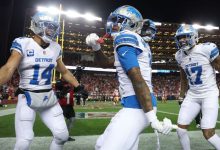Auburn’s Hugh Freeze urges mindset change amid SEC discussions on schedule adjustments, aiming for stronger team performance and focus.

As the Southeastern Conference (SEC) continues to explore adjustments to its football scheduling format, Auburn head coach Hugh Freeze has stepped forward with a call for a shift in mindset. Freeze’s message is clear: while changes to the schedule may bring new challenges, the key to sustained success lies in how teams and players approach those challenges mentally and culturally.
This timely perspective comes as the SEC considers modifications to its traditional schedule in response to conference expansion and evolving college football dynamics. Freeze’s emphasis on mindset underscores the importance of adaptability and resilience, not just tactical preparation.
The Context: Why is the SEC Talking Schedule Changes?
The SEC’s ongoing discussions about schedule changes come amid significant shifts in the college football landscape. The conference’s expansion to 16 teams, with the addition of powerhouse programs like Texas and Oklahoma, demands a reevaluation of how teams face each other each season.
Traditionally, the SEC’s scheduling format revolved around divisional play, with teams playing most opponents within their division and select cross-divisional games. However, with more teams in the conference, the old divisional structure no longer serves the goal of fairness and competitive balance.
The SEC’s goal is to create a schedule that preserves historic rivalries while ensuring every team plays a competitive slate of games, enhancing the overall quality and excitement of the conference.
Hugh Freeze’s Call for a Mindset Change
Against this backdrop, Hugh Freeze has advocated for a fundamental shift in how teams approach the upcoming changes. Rather than focusing solely on external factors like opponents or travel logistics, Freeze stresses the internal element—the mindset of coaches, players, and staff.
In interviews and team meetings, Freeze has emphasized the need for:
- Resilience: Embracing adversity and change as opportunities for growth rather than obstacles.
- Focus: Concentrating on preparation, execution, and teamwork regardless of who the opponent is.
- Adaptability: Being open to new challenges and adjusting strategies accordingly.
- Accountability: Holding oneself and teammates responsible for performance every week.
Freeze’s leadership message is rooted in the belief that mental toughness and a winning culture will ultimately define Auburn’s success, more so than any scheduling formula.
Why Mindset Matters More Than Schedule Format
Many fans and analysts often debate which schedule format benefits which teams. While logistics and matchups are important, Freeze’s perspective highlights that the greatest advantage comes from how a team prepares and competes.
For example, a team with a strong mindset will:
- Treat every game with equal intensity, avoiding traps against perceived weaker opponents.
- Bounce back quickly from setbacks or losses.
- Maintain focus during long stretches of challenging games.
- Leverage the unpredictability of a new schedule to their advantage.
Conversely, a team reliant on favorable scheduling may falter if mentally unprepared.
Freeze’s Auburn Program and the Importance of Mental Toughness
At Auburn, Hugh Freeze has worked to build a program that values mental toughness and discipline. His emphasis on mindset aligns with his broader coaching philosophy, which focuses on:
- Building Character: Encouraging players to grow not just as athletes but as leaders.
- Consistent Preparation: Fostering habits that ensure readiness for any opponent.
- Team Unity: Creating a culture where every member supports collective goals.
This philosophy has become even more critical as Auburn faces heightened competition within the evolving SEC.
How Schedule Changes Could Impact Auburn
While Freeze urges mindset over excuses, there is no denying that schedule changes present real challenges. Auburn could face:
- New Opponents: Playing teams they haven’t regularly faced, requiring extra scouting and preparation.
- Increased Travel: More distant games may affect player recovery and logistics.
- Rivalry Preservation: Adjusting schedules to maintain key rivalries like the Iron Bowl with Alabama.
- Competitive Balance: Facing stronger teams more frequently within a balanced schedule.
These factors require both strategic planning and a team mentality capable of embracing change.
SEC’s Proposed Schedule Formats and Implications
The SEC is reportedly considering several scheduling models, such as:
- Model without Divisions: Every team plays a set of opponents annually, rotating others to balance exposure.
- Protected Rivalries: Preserving certain rivalry games each year regardless of overall scheduling.
- Flexible Cross-Conference Play: Balancing competitive equity with historic matchups.
Each model has pros and cons. Freeze’s message suggests that Auburn’s success will depend less on which model is chosen and more on the team’s internal approach.
What Players Say About the Mindset Shift
Players on Auburn’s roster have echoed Freeze’s sentiments. Many recognize that college football requires mental resilience, especially amid uncertainty.
Veteran leaders have talked about:
- The importance of staying “in the moment” and not getting distracted by external changes.
- Supporting teammates through transitions and maintaining a positive attitude.
- Using schedule changes as motivation to prove themselves against all challengers.
Such buy-in from players is crucial for Freeze’s vision to materialize.
Coaching Staff’s Role in Cultivating the Mindset
The coaching staff at Auburn plays a pivotal role in instilling the mindset Freeze champions. This involves:
- Regular mental conditioning sessions.
- Emphasizing goal-setting and visualization techniques.
- Providing tools for stress management and focus.
- Encouraging open communication and feedback.
These practices create an environment where players feel empowered to tackle new challenges head-on.
Historical Examples: Mindset Over Schedule
College football history offers examples where teams overcame tough schedules through mindset alone:
- Programs like Appalachian State in their upset of Michigan.
- Teams facing grueling road stretches yet finishing strong.
- Underdogs prevailing by embracing the challenge mentally.
Freeze hopes Auburn can follow in these footsteps.
Fan and Media Reactions
The public response to Freeze’s mindset message has been largely positive. Fans appreciate the focus on fundamentals rather than external factors, viewing it as a sign of maturity and leadership.
Media outlets have highlighted Freeze’s comments as a refreshing take amid widespread speculation about scheduling advantages.
Looking Ahead: Preparing for the Future
Auburn’s coaching staff is already planning how to implement mindset training alongside tactical preparation. This includes:
- Preseason camps focused on mental toughness.
- Workshops with sports psychologists.
- Team-building retreats emphasizing resilience.
The goal is a holistic program that prepares Auburn athletes physically, mentally, and emotionally.
Conclusion: Mindset as the Key to Success in an Evolving SEC
As the SEC navigates significant scheduling changes, Hugh Freeze’s call for a mindset change serves as a powerful reminder that success ultimately depends on how a team prepares internally. While schedules and opponents will shift, Auburn’s focus on resilience, adaptability, and accountability positions the Tigers to thrive regardless of external variables.
Freeze’s leadership highlights the importance of culture and mental toughness as foundations for winning programs. Auburn’s players and staff appear ready to embrace this challenge, setting the stage for a competitive and exciting future in the SEC’s new era.









